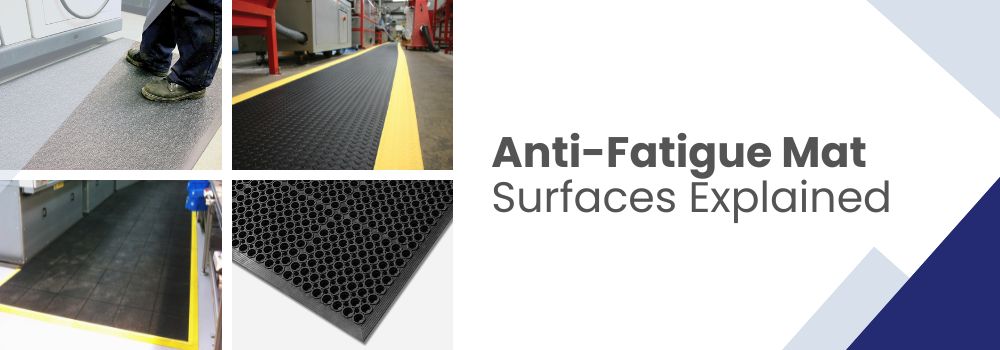Are Anti-Fatigue Mats Required by Law?
There are many reasons to use anti-fatigue mats in your workplace. They reduce the fatigue effects from standing in one place for too long whilst reducing the slip risks; they can capture swarf from machines and prevent dirt from entering a clean area. The benefits are undeniable, but are anti-fatigue mats required by law?
If logic is what ensures that employees have adequate chairs to sit on, then it should also be enough to convince employers to provide anti-fatigue mats.
Currently, in England and Wales, there is no legal obligation for employers to provide anti-fatigue mats to their employees. It’s also worth remembering, however, that there is also no law preventing employers from supplying workers with upturned cardboard boxes instead of chairs! It’s not difficult to imagine what effect this action would have on staff morale.
Let's look at the facts…
- In 2015, an independent source found that 75% of companies who invested in anti-fatigue matting saw a positive impact on staff well-being.
- 44% saw increased productivity after installing anti-fatigue mats in the workplace. 23% confirmed that absenteeism had fallen too.
- When working in a job that involves mainly standing, it takes only 90 minutes before fatigue takes effect.
- In a 1987 study at the Center of Ergonomics at the University of Michigan, it was found that workers who stood on anti-fatigue mats were able to reduce the level of fatigue and discomfort by as much as 50%
Conclusion
So, unless you happen to be reading this whilst sitting on a cardboard box, we’re sure that you’ll agree that the benefits are a good enough reason for employers to provide anti-fatigue mats even if they are not required by law to do so.
With the growing emphasis on occupational health and safety, we can expect that laws will come into place in the future.
Find out more about anti-fatigue mats and view our range here.









